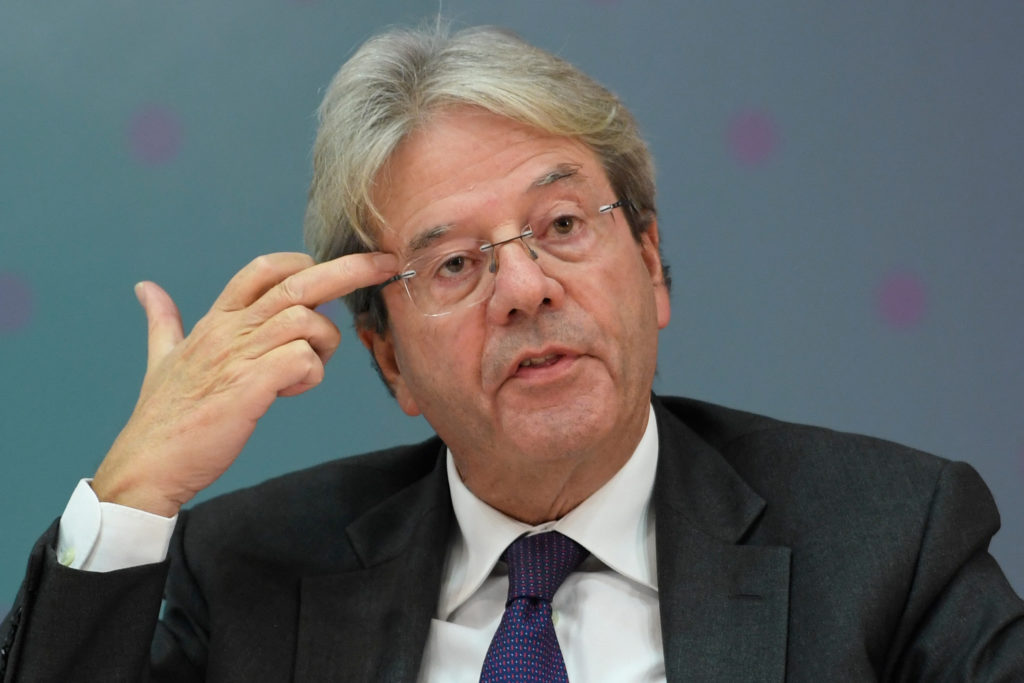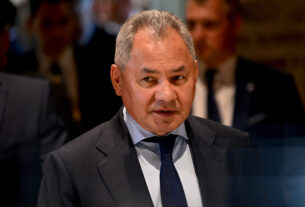Chancellor Olaf Scholz’s blinkered focus on German rather than EU priorities in the energy crisis is blowing up on European Commission President Ursula von der Leyen, whose all-important French and Italian commissioners are now breaking ranks to cry foul about Berlin’s behavior.
Facing heavy pressure from industry and consumers — and voters in regional elections in Lower Saxony on Sunday — Scholz is taking a go-it-alone approach to pouring up to €200 billion into the German economy to help cushion the impact of soaring energy prices.
That huge cash injection sparked howls of protest from the Italian and French commissioners to the EU, Paolo Gentiloni and Thierry Breton, putting von der Leyen’s Commission in the excruciating position of having to distance itself from two of her most senior officials, from the bloc’s second-biggest and third-biggest economies. Strictly speaking, commissioners are not meant to act as emissaries of their home countries but the protests from Gentiloni and Breton perfectly mirror the arguments from Rome and Paris.
The Franco-Italian complaint against Germany is that Berlin will distort the EU’s hallowed common market by putting state-funded German companies at an unfair advantage over rivals, which is all the more galling for critics who argue that Berlin was a leading architect of the energy crisis by establishing a dependence on Moscow’s gas export monopoly Gazprom.
Gentiloni and Breton lobbed their grenade against Scholz on Monday night, by penning an op-ed for a series of newspapers calling for solidarity and a common European approach to solving the energy crisis. Just days before this week’s EU summit in Prague, they called for “mutualized tools at the European level” — which seemed to suggest the sort of jointly guaranteed loans that were used to help in the coronavirus pandemic.
Seeking to douse the flames but effectively admitting that the French and Italian commissioners had gone rogue, a European Commission spokesperson said: “Op-eds are personal initiatives of the relevant commissioners,” the spokesman said. “They do not commit the Commission.”
While distancing von der Leyen from the Franco-Italian op-ed, the spokesman added the Commission president was separately insisting on the need to protect the common market and for “European solutions.”
The tensions will come to a head at a meeting of the College of Commissioners on Wednesday — a rare instance of commissioners meeting twice in one week, although Wednesday’s is a video call. Von der Leyen skipped Tuesday’s weekly meeting of commissioners in Strasbourg, which was instead led by Commission Vice President Margrethe Vestager, in order to meet French President Emmanuel Macron in Paris for talks.
The big question now is whether Paris and Rome mobilize in earnest and whether von der Leyen can hold back that tide. Valdis Dombrovskis, the European Commission vice president responsible for the economy, is certainly holding a tough line and is pushing back against the idea of joint debt.
Immovable object
As the disquiet spreads among other EU countries about the German proposal, Chancellor Olaf Scholz struck a defiant note on Tuesday.
Speaking alongside Dutch Prime Minister Mark Rutte, Scholz defended the proposal as “a very balanced, very smart and very decisive package.”
He added that “perhaps not everybody realized immediately” that the €200 billion was not just for this year, but for 2023 and 2024 as well, noting that Germany had been forced to bail out large energy companies like Uniper.
Scholz’s pushback captures the clash between the German government’s domestic concerns and his apparent willingness to ignore the pleas of his European partners. With energy prices sky-rocketing and inflation at runaway levels, the German government is acutely aware that there’s much to play for in Lower Saxony, where Scholz’s Social Democratic Party is looking to maintain its control of the region.
Scholz’s skepticism about an EU-wide measure was echoed by German Finance Minister Christian Lindner at Tuesday’s meeting of finance ministers in Luxembourg. “We are open to discussing other instruments, but this crisis is very different from the corona pandemic,” he said.
Sven Giegold, a state secretary at the Green-led German economy ministry, also sought to defend the spending by arguing that others like France were introducing price caps. “We have not even defined how the famous €200 billion package will be used. But, German industry keeps complaining to us that their offers are undercut by European competitors which are profiting from energy price caps,” he said.
Those in favor of a new EU-wide instrument noted that the language in the Gentiloni-Breton opinion piece was deliberately vague, allowing room for discussion on what precisely a “mutualized tool” could be. But given the sensitivity of the idea of fresh common debt issuance, the model being proposed is more likely to be based on SURE, the COVID-era program that granted businesses loans on favorable terms, which Gentiloni suggested at Tuesday’s meeting of finance ministers.
Scholz suggested on Tuesday that there are still funds left in the COVID-era Next Generation EU fund that could be used in a crisis — a view that could gain support within the Commission, given the wariness of some commissioners to open up a whole new layer of European Commission bureaucracy to deal with the energy crisis.
The row over Germany’s strategy is likely to dominate Friday’s meeting of EU leaders in Prague. In advance of that, Scholz will have an opportunity to try to sell his plan to Spanish Prime Minister Pedro Sánchez when the two meet in A Coruña on Wednesday.
Multiple officials said the move by Breton and Gentiloni could be an attempt to kickstart the conversation about an EU-response to the crisis, and perhaps a tactic to help pressure Germany to support a gas price cap, an idea that has been pushed in particular by Italy for months.
However effective the joint push by Gentiloni and Breton proves to be, the controversy has shown, according to Georg Zachmann from the Bruegel think tank, the need for a common EU approach to the energy crisis, as he warned against a “subsidy race” between countries.
“I think the challenge that we have is that some countries have deeper pockets than others to deal with the current crisis. A very uneven resolution to the crisis might make matters worse by kicking off a subsidy race between countries … I think a more European approach makes a lot of sense.”
This article is part of POLITICO Pro
The one-stop-shop solution for policy professionals fusing the depth of POLITICO journalism with the power of technology
Exclusive, breaking scoops and insights
Customized policy intelligence platform
A high-level public affairs network



